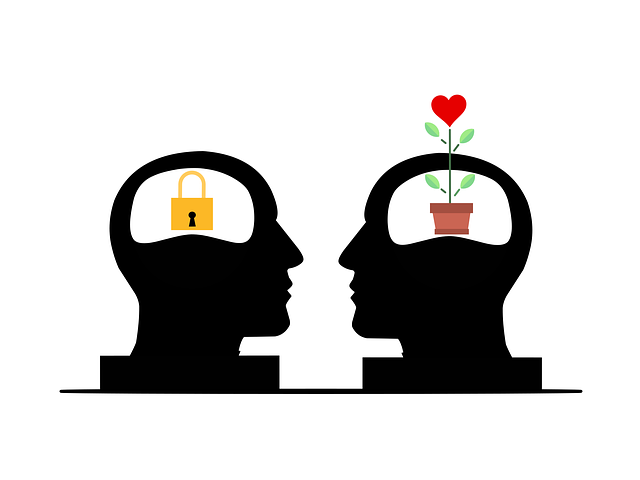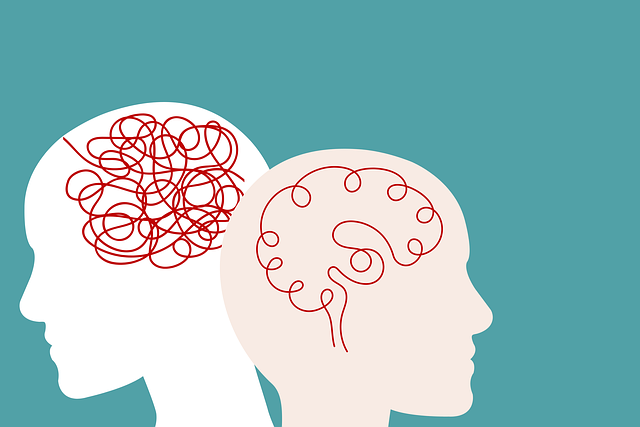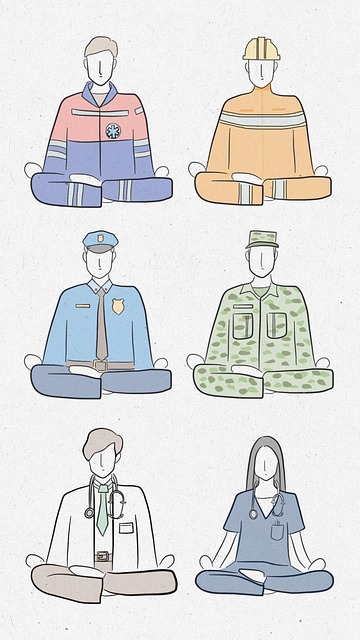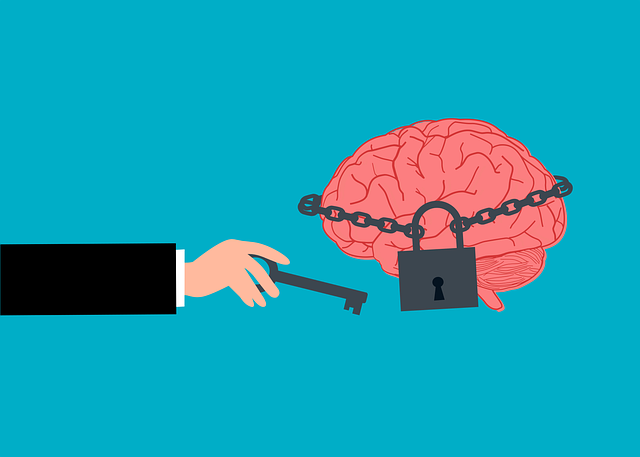Lone Tree Mindfulness Therapy offers a holistic approach to emotion regulation, combining mindfulness meditation, breathwork, cognitive reframing, and self-compassion for improved mental well-being. This modern therapy empowers individuals to manage emotions like anxiety, anger, and sadness adaptively, enhancing resilience against stress and depression. For mental health professionals, integrating these techniques in risk management planning equips clients with practical tools for stress reduction, fostering inclusive environments for diverse populations' mental wellness journeys.
Emotion regulation techniques are essential tools for navigating life’s challenges. In today’s fast-paced world, learning how to manage our emotions can foster resilience and improve overall well-being. This article explores various teachable techniques, from Lone Tree Mindfulness Therapy to breathwork, meditation, cognitive reframing, and self-compassion. Understanding these strategies is crucial for calming the mind and cultivating emotional balance, making them valuable resources in our personal growth journeys.
- Understanding Emotion Regulation: The Need for Teachable Techniques
- Lone Tree Mindfulness Therapy: An Approach to Calming the Mind
- Breathwork and Meditation: Tools for Emotional Control
- Cognitive Reframing: Challenging Negative Thoughts
- Practicing Self-Compassion: A Path to Inner Peace
Understanding Emotion Regulation: The Need for Teachable Techniques

Emotion regulation is a vital skill for navigating life’s challenges and maintaining mental wellness. It involves understanding and managing one’s emotional responses in healthy ways, ensuring that feelings don’t overwhelm or control our actions. In today’s fast-paced world, where stress and pressure are prevalent, teaching emotion regulation techniques becomes increasingly important. This is especially true for individuals seeking holistic approaches to their mental health, like those who turn to Lone Tree Mindfulness Therapy.
By incorporating teachable techniques into mental healthcare practices, particularly in the context of Cultural Sensitivity in Mental Healthcare Practice, healthcare providers can empower clients with valuable tools. Effective emotion regulation strategies can help individuals cope with anxiety, anger, or sadness more adaptively and enhance overall resilience. Moreover, training in this area demonstrates a commitment to Healthcare Provider Cultural Competency Training, fostering an environment where diverse populations feel understood and supported during their journey towards mental wellness.
Lone Tree Mindfulness Therapy: An Approach to Calming the Mind

Lone Tree Mindfulness Therapy offers a unique approach to calming the mind and regulating emotions. This therapeutic method encourages individuals to connect with their inner selves, fostering a deeper understanding of their thoughts and feelings. By focusing on the present moment, it helps to reduce stress, anxiety, and even symptoms associated with depression. The practice involves mindfulness meditation, breathing exercises, and body scans, all designed to enhance self-awareness and emotional intelligence.
In today’s fast-paced world, where burnout prevention is a growing concern, Lone Tree Mindfulness Therapy provides valuable tools for self-care practices. It empowers individuals to navigate life’s challenges with greater resilience and equanimity. Through regular practice, one can learn to observe their emotions without judgment, leading to better emotional regulation and overall well-being, which is crucial in preventing depression.
Breathwork and Meditation: Tools for Emotional Control

Breathwork and meditation are powerful tools within Lone Tree Mindfulness Therapy that can greatly aid in emotion regulation. By focusing on controlled, conscious breathing, individuals can activate their parasympathetic nervous system, promoting relaxation and calming the mind. This simple yet effective technique is a cornerstone of stress reduction methods, helping to mitigate intense emotions and preventing impulsive reactions.
Regular practice of mindfulness meditation further enhances emotional intelligence by fostering self-awareness and attentiveness. It encourages individuals to observe their thoughts and feelings without judgment, allowing them to manage emotional responses more effectively. For mental health professionals, integrating breathwork and meditation into risk management planning can be invaluable, providing clients with practical tools for coping with stress and preventing emotional overload in challenging situations.
Cognitive Reframing: Challenging Negative Thoughts

Cognitive Reframing is a powerful emotion regulation technique that involves challenging and changing negative thought patterns. When we experience strong emotions, our minds often create distorted or unhelpful thoughts, which can escalate feelings of stress, anxiety, or sadness. By using cognitive reframing, individuals learn to identify these automatic negative thoughts and replace them with more balanced and realistic ones. This process helps to reduce emotional distress and promote a sense of calm. For instance, if someone feels overwhelmed by a task, they might reframe the thought from “I can’t handle this” to “This is challenging, but I have overcome difficult tasks before, and I can take it one step at a time.”
Lone Tree Mindfulness Therapy emphasizes the role of cognitive reframing as an essential tool for personal growth and emotional well-being. By learning to reframe thoughts, individuals can cultivate a more positive mindset and develop resilience in the face of life’s challenges. This technique is often integrated into therapy sessions and Self-Care Routine Development for Better Mental Health programs, alongside Empathy Building Strategies, to empower individuals to manage their emotions effectively and enhance overall mental health. Mindfulness Meditation also plays a significant role in cognitive reframing, as it helps individuals become more aware of their thoughts without judgment, facilitating the process of identifying and transforming negative thought patterns.
Practicing Self-Compassion: A Path to Inner Peace

Practicing self-compassion is a powerful tool that can significantly contribute to one’s emotional well-being and overall mental health, as highlighted by Lone Tree Mindfulness Therapy. This approach involves treating oneself with kindness, understanding, and forgiveness, especially during moments of difficulty or when facing challenging emotions. By adopting a compassionate mindset, individuals can develop a deeper sense of self-acceptance and learn to navigate life’s ups and downs with grace.
In today’s fast-paced world, where stress reduction methods are increasingly vital, self-compassion plays a crucial role in preventing burnout, particularly for healthcare providers who often face intense emotional demands. Mental wellness journaling exercises guided by professionals can be an effective way to cultivate self-compassion. By regularly reflecting on one’s experiences and emotions, individuals can gain valuable insights into their thoughts and feelings, fostering a more compassionate relationship with themselves. This practice encourages open dialogue with oneself, allowing for better understanding and acceptance of both strengths and weaknesses.
In conclusion, mastering emotion regulation techniques is a valuable skill that can significantly enhance overall well-being. The various methods explored, such as Lone Tree Mindfulness Therapy, breathwork, cognitive reframing, and self-compassion practices, offer practical tools for navigating and managing emotions effectively. By integrating these teachings into daily routines, individuals can foster resilience, improve mental clarity, and cultivate a deeper sense of inner peace.














